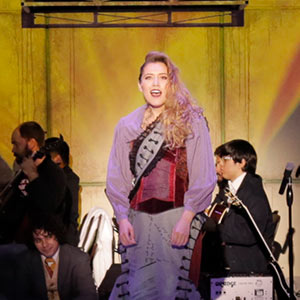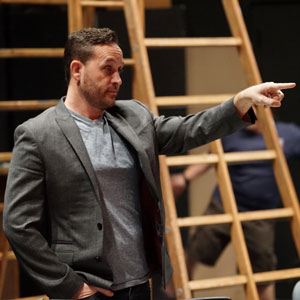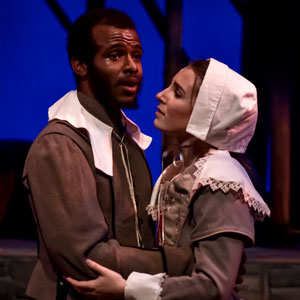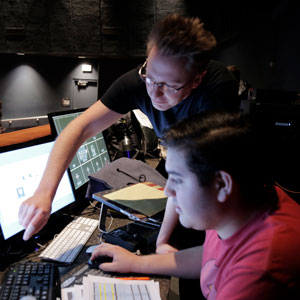Something new for 'Romeo and Juliet'
— Fullerton College Hornet - Galen Peoples - Friday, March 15th, 1974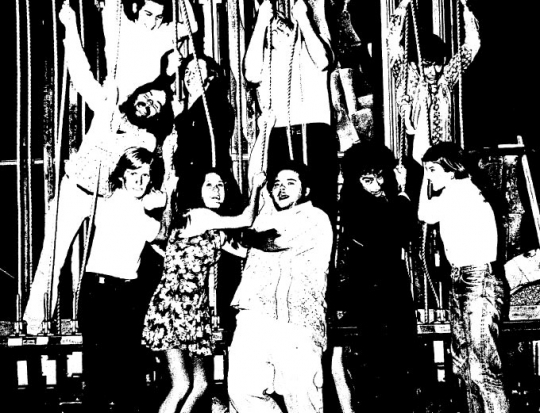
Romeo meets Juliet at 8 in the Campus Theatre. The production, directed by George Stoughton, begins March 22, and continues March 28, 29 and 30. It includes two dances, three sword-fights, five deaths, and some elegant writing.
"What we're trying to do," said Chris Codol, this production's Romeo, "is to take something old, dust it off, and make something new of it."
His matching Juliet, Pam Brull, added, "We want to modernize it in a classic way, make it for this day, except with the classical, the Renaissance, age in mind."
The two, who might be spotted as likely candidates for their roles, if a bit contemporary - looking, discussed the ongoing production three days before its opening. Their remarks followed a long period of thought, for which Codol took the form of some amusing hopping-around. Ms. Brull looked more pensive. Also present was Jennifer Young, student. production coordinator ("I assist in any way I can"), who was more readily voluble.
Understanding Shakespeare
"What we're trying for," explained Ms. Young, "is something modernistic in the sense that people might say, 'God, that really could happen.' But we don't want to kill the beautiful poetry. We want to make them
understand it by fighting the poetry, yet conveying the beauty of the lines, so people can sit back and say, 'Gee, I understand Shakespeare.'."
Ms. Brull put it in more practical terms: "We're trying to make the dialogue conversational, so we have to be sure to understand what we are saying ourselves. People are going to have to open their ears and really listen, and our job is to try to make it easier for them."
Codol views the love of the young couple as "an embodiment of the paradox about sacred and profane love." As background to it, "The social thing has gone under; the state is in uproar; the two major families are at war with each other..."
"Their love fed on the separation of their families," said Ms. Brull. "It drew them together. But the kind of love that they had couldn't work, normally. Both had bone at it like there was no tomorrow, but their love had such passion, they couldn't see each other." Had they lived, she believes "their fires would have burned each other out."
The youth of the city, Romeo's circle of, friends, "is down-to-earth," according to Ms. Young, "but not hard, like 'West Side Story.' Like kids on campus, they sit around and joke around...yet they're dignified."
Lovers Are Equal
From the viewpoint of these comparatively liberated times, do Romeo and Juliet stand on equal footing as partners? Both Ms. Brull and Codol answer definitely "yes." Codol: When everything's spinning around, it's hard to say who's on top...There is a certain weakness inRomeo: he subscribes to the courtly - love thing wholeheartedly." Ms. Brull: "They're basically on an equal level...They don't care about it."
What do the actors hope to convey to the audience? Ms. Brull responded quickly: "We want people to relate to the separation of the families, how people don't relate to things until something they love, something they cherish, is destroyed."
"Men have no medium for the expression of tragedy in their lives,/ said Codol. "If they did, they would have no need to see something like this."
Anything else? Ms. Brull did make one surprising confession, possibly a first from a Juliet: "I have bad acrophobia. So I had trouble in the balcony scene."





